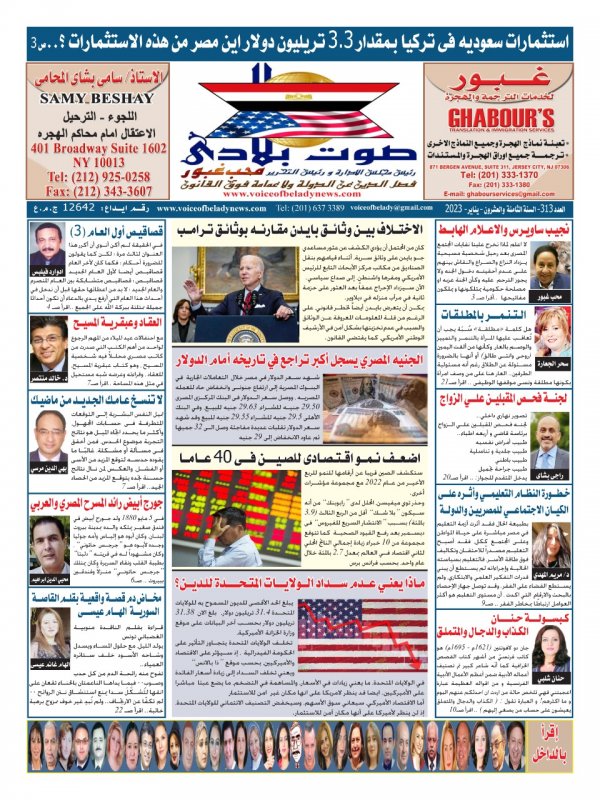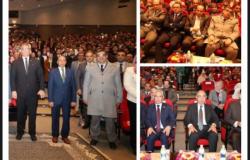This is not in praise of Trump. It is a salutation for the doctrine of "international humanitarian intervention." It is easy to understand. When a State commits genocidal acts against its own citizens, it is lowering the walls surrounding it (we call it sovereignty) for the outside world to jump over them and say "enough." Bashar Al-Assad has used against his own citizens chlorine bombs, nerve gas, and now, in Idlib, has used Sarine gas. On Tuesday, April 4, about 100 victims, including dozens of children, have suffocated.
By doing so, he has proved that, to him and his supporters, sovereignty meant a fake license in the hands of the State (and Syria is no longer a State except in name only) to kill en masse. How obtuse for him to miscalculate in a big way: that the Trump search for accommodation with Putin is a shield for his murderous regime; that the non-action by Obama on crossing "red lines" shall hold under Trump; that Trump's support for that inaction before the Trump's presidency shall hold; and that the justification used by him as his war on ISIS shall save him from being considered a war criminal.
Launching 59 missiles by the US navy on April 6 against the Syrian Shayrat airfield from which the Sarine attack on Idlib was launched demonstrates a general fault line in Arab thinking about America. That comprehension deficiency boils down to the non-understanding of the U.S. as a compartmentalized State.
Because of the decline in education in the Arab homeland, the process of thinking about issues is very linear: things are either white or black; relations are based on being a friend or a foe; if you take from me, it is a zero-sum situation whereby I lost totally and you gained totally. No nuancing, no compartmentatlizaton.
How is America compartmentalized? A modern State can do many things simultaneously, regardless of the surface appearance of contradictions. Here are actual examples from the recent episode of striking Syria -a strike which may lead to other strikes in the coming days:
- The US national securitycouncil has just been reorganized: separating national security from politics;
- The professionals of the 17 US security agencies, together with the Pentagon and the military contracting industry have chased away the opponents of globalization, like Steve Bannon, from meddling in war and peace issues;
- The "America First" of Trump has been re-interpreted to mean: yes for rebuilding the infra-structure, but no for disengagement from the world;
- Investigating the connections between the Trump team and Russia shall go on, while Trump is allowed to garner the glory of a tough America to himself;
- The UN could be downgraded, while Nikki Haley, the US Ambassador to the UN, is upgraded to have a seat on the US national security council;
- The issue of human rights within States can be ignored as encumbering US diplomacy with those States.But the Syria attack on the UN Convention Against the Use of Chemical Weapons cannot be set aside;
- While Trump was dining with the Chinese President at his Florida privately-owned southern White House (Mar-A-Lago) -the U.S. navy was nullifying through that missile attack on the Assad regime, the presence of fixed Russian bases on the Syrian coast.
This is the essence of American mixing of party politics, strategy, national interest and diplomacy in a composite whole with so many facets that rotates all the time like a strobe light in a darkened night club.
As a result of this constant dynamic, the American strike on the Syrian Shayratairbase, is expected to be followed by others. For the message telegraphed by American compartmentalization is not aimed only at Bashar who can no longer aspire to rule over a united Syria.
The message is complex as it is directed, not from the White House, which under Trump is a house divided onto itself, but from the myriad of tissues which can only be deciphered by constant analysis. Deciphering here means being turned into ordinary writing, whose impact may last only for a short period, only to be replaced by fresh analysis.
This is a message that says, for now, the following:
- To the Gulf: there is no American abandonment; just pay for your own defense, and America, with two huge navies in the Mediterranean and the Gulf, shall keep its finger on the trigger;
- To Russia: there is a difference between asserting your power in your "near abroad" (the Ukraine...etc.) in the south, and your pressure on the "near abroad" (the Baltics ...etc.) in the north. The latter is shadowed by NATO, through Poland and Scandinavia;
- To North Korea: watch out, Pyongyang, we are watching. We have 37,000 American troops in South Korea. And your emboldened nuclear missile technology is a threat to East Asia and America's west coast. The time has come for planting nuclear weapons in South Korea;
- To ISIS: you may live on as free lancers of marauding hit and run; but Mosul (Iraq) and Raqqa (Syria) shall be over-run; and
- To regional strong Arab States, such as the New Egypt: we can cooperate in specific well-defined areas. The war on terror and American private investments are examples.
- The Russian thesis of "no intervention in internal affairs" has been well served by the Soviet and later Russian use of the veto in the UN Security Council. A non-changeable thesis since 1945. But this doctrine draws its life from another doctrine, namely, sovereignty.
But Moscow, on its attack at the UN Security Council on the American strike, ignores the growth of the doctrine of international humanitarian intervention.A doctrine which has grown out of the Geneva Conventions of 1949 (protection of civilians in times of war), augmented by the UN Conventions against genocide, civil and political rights, the use of chemical weapons, and the non-resort to weapons of mass destruction.
Russia's present resort to the UN Security Council shall be of no avail. And if push comes to shove militarily in the eastern Mediterranean, America's military and economic power shall overwhelm Putin's Russia. Putin may have overplayed his hand, thinking that a Trump-Putin detente might preempt America's military actions.
Even a possible Putin blackmail of Trump for the latter's presumed sexual indiscretions while in Moscow in 2013 might cause the Trump administration to look the other way. It shall not.
While Putin may be the sole actor in Russia, Trump is beholden to the complexity of a compartmentalized America -a country of 50 States stitched together in one. The economy of California alone is bigger than the economy of France. And the half trillion dollars budget of the Pentagon makes America militarily ahead of the next 20 sovereign States of today.
Should America be the world's gendarme? No!! But at these times of our world being in disarray, a swift military action by the US is intended for several purposes. High among these purposes is the projection of US military power. This power is exercised now without a Congressional declaration of war.
For the enemy is diffuse, terrorism has neither boundaries nor uniforms nor real faith, unpredictability by a receding ISIS is outmatched by the unpredictability of a constantly innovating military "lean and mean" American machine.
Syria is expected to be hit again and again. The Syrian UN representative might babble on at the Security Council about "criminal aggression." But who is listening and what could an enfeebled international organization do, except to record a hollow speech?
"Take Assad's air force out" is the new norm. The real action on Syria is now in Washington, D.C., and Moscow, and Brussels (on billions of dollars for reconstruction).
In the era of "universal jurisdiction," any State can act. Yet, in the Arab world, complexities are tiresome. Analysis is deficient. Resort to vocalization is a national pastime. Arab media are nearly comatose!!
NOTE: New blog postings shall be periodical, until my new book is ready for the press this Fall. Its title: "War OnJihadism Ideologically: The New Islamic Religious Revolution"




 رئيس التحرير يكتب : من التراب وإلى التراب يعود .. تحويل جثث الموتى إلى سماد عضوى
رئيس التحرير يكتب : من التراب وإلى التراب يعود .. تحويل جثث الموتى إلى سماد عضوى
 رئيس التحرير يكتب : لماذا تصر الحكومة على استمرار شريف أبو النجا رئيسا لمستشفى 57357 رغم الشواهد العديدة على فساده
رئيس التحرير يكتب : لماذا تصر الحكومة على استمرار شريف أبو النجا رئيسا لمستشفى 57357 رغم الشواهد العديدة على فساده اقرأ في العدد الجديد ( عدد يناير ٢٠٢٣ ) من جريدة صوت بلادي
اقرأ في العدد الجديد ( عدد يناير ٢٠٢٣ ) من جريدة صوت بلادي









